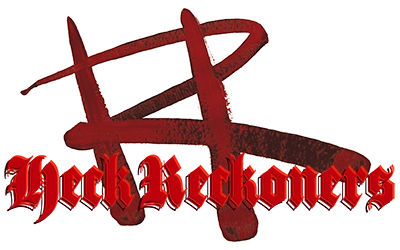When asked why he never cheated on his wife Joanne Woodward, Paul Newman famously said, “I have steak at home. Why should I go out for hamburger?”
It sounds very romantic, but it also seems like he dodged the question by asking a rhetorical one of his own, a question whose answer isn’t as obvious as his baby blue eyes and easygoing charm probably made it seem.
Why would anyone eat hamburgers when they have steak at home? I dunno, maybe because a sloppy bacon hamburger with cheese sounds pretty fucking delicious next to a dried out skirt steak that’s mad at you for accidentally dribbling a little piss on the toilet seat.
Novelty is the spice of life. This is especially true for musicians.
Ears don’t make vows in front of God and all their family and friends not to listen to a disgusting double cheeseburger every now and then. And blessings for that, because a little sonic straying means you’ve got new moves in the bedroom when you come back to your One And Only.
All this is a long preamble to say that I’ve been messing around with new guitar pedals lately, specifically the Prime grade chuck of the SOMA Laboratory COSMOS Drifting Memory Station, a mammoth space station command center of loops, delay, compression, and high and low pass filters, centered around an algorithmically programmed dial that splatters any sound you pump into the device like Jackson Pollock with acrylic paint.
I’m the only guitarist in a punk rock band, which means I don’t really get a chance to fuck around. A punk band is like a crane (the bird, not the construction equipment). When in full flight, it’s agile, graceful, and beautiful. But when it’s not, it’s twiggish, awkward, and sounds annoying. Plenty of bands can vamp, unwind, or groove. Punk rock bands can’t. They drive straight ahead and then they crash into a brick wall.
But sometimes I don’t want to play guitar with the pedal to the metal, sometimes I like to play it like a leisurely, Sunday drive.
Besides, I was getting mighty sick of my shit. In some ways, I feel lucky. If I give myself the time and space, and if my antenna is up to accept transmissions from wherever songs come from, one will fall out of my head or fingers every six weeks or so. But for the past couple months, the riffs I’ve been playing and the lyrics I’ve been writing have felt very blah. Oh, more drop D chromaticism! Oh, another take on the relationship between sex and power, another take on the profit motive as the Death Drive! Another fucking lyric where we say “fucking” instead of finding a more impactful two-syllable word. The brain can encompass a universe, but sometimes it feels like a prison cell. Even if the eating is good: another fucking filet mignon?!
Enter the COSMOS. When I bought it off him Jake said, “This is like giving acid to a garage rocker.” Open the Doors of Perception, doctor.
Here’s how a typical session with the COSMOS goes: I lay down a bed of reverb, tinkle a couple notes on top, ping a couple lead lines off each other – this is nothing like “Safeword” or “Thrill Kill.” It’s, dare I say, pretty. In goes some modulation to add some wobble. I flip on distortion, some fuzz. The amorphous cloud of guitars gains mass. I hit a note out of key. The delays highlight it while normalizing it. I go for another. And another. The cloud grows stormier, more discordant. I max out the delay’s feedback, spike the gain knobs, and tremolo pick, turning my guitar into a wind tunnel. The COSMOS whips up a storm. For shits and giggles, I layer a fat chromatic drop D riff on top of the maelstrom. The pedal redlines, compressing the signal so it doesn’t blow out my headphones. I turn the dial. The cacophonous cloud lurches, pans hard right and then hard left. I turn the dial again. The sound sucks up like a house fire’s backdraft, before blowing out all at once. This music is a hurricane personified, giant boulders of noise, strafed with sheets of shrapnel, a whirling, screaming, disorienting cumulonimbus of sound.
Motherfucker, sounds like punk rock after all. No matter where you go, there you are. Let’s be honest, steak and burger are pretty much the same thing anyway. It’s all cow.
***
This week’s Heck Record is Neil Young’s 1989 album Freedom. A lot of ‘60s stalwarts had a tough time in the 1980s. Many found themselves trying out new sounds or identities before returning, more or less, to the same place that had started. The Rolling Stones tried disco and new wave, released a series of unusual albums, almost broke up, and then returned at the end of the decade with Steel Wheels, which is like the first classic rock revival album. Bob Dylan embraced Christianity, evangelized on three gospel-tinged albums from 1979-1981, and then returned to secular music as fast as he had left it with 1983’s Infidels.
But Neil Young had the most circuitous road back home, one that found him sued by his own record label for releasing music that was “unrepresentative” of himself. After a decade and half in which he resembled the hippie hangover of the 1970s, both as a stoned rocker and sad-voiced country folkie, Young began to experiment. He tried his hand at making electronic music with the vocoder-laden Trans, put a rockabilly band together for Everybody’s Rockin’, recorded a straight-up country album with Old Ways, and added a horn section for the jazzy This Note’s For You. Only Neil Young likes anything on these albums.
But, in 1989, after a decade of flops, Young finally just gave the people what they wanted: screaming guitar, sad folk songs, political songs that made fans hopeful that maybe he didn’t love Ronald Reagan, and an iconic anthem that has gained cultural baggage as it introduced Donald Trump to the world as a for-real presidential candidate, “Rockin’ in the Free World.” Remember the escalator?
Freedom not only righted Young’s career, it revitalized him as a cool uncle to Gen-Xers like Sonic Youth and Pearl Jam, and probably gave him enough rope to make as many shitty albums as he wanted without any critical blowback at all. (Seriously, Young has ten albums that are unimpeachable, but he has made like fifty albums. If you’re a Young newbie, find a guide. Or try Freedom.)
All that said, Young found his decade in the wilderness, “really good. The ‘80s were artistically very strong for me…sometimes with great results, sometimes with terrible results…. I was able to realize that I wasn’t in a box.” No, Neil, you were in a burger.


Comments